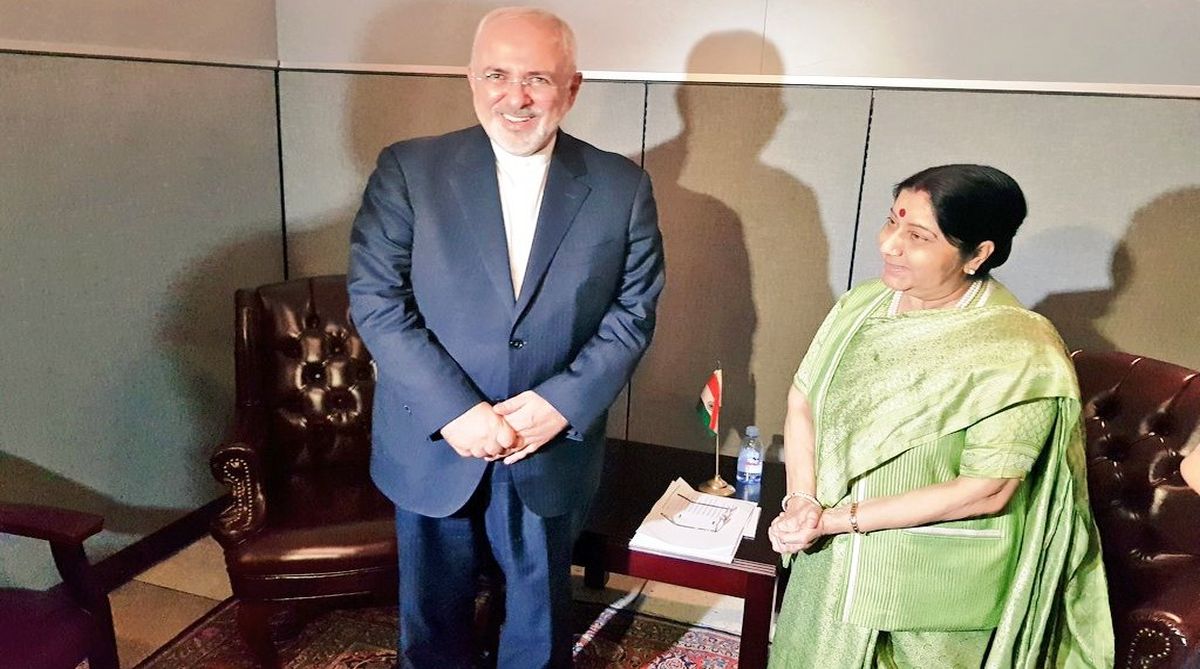India has intensified negotiations with Iran at the diplomatic level over oil imports as well as completion of the Chabahar Port project even as the US has shown no signs of relenting in its position on bringing into force the second round of sanctions against the Islamic Republic on November 4.
External Affairs Minister Sushma Swaraj met Iranian Foreign Minister Javad Zarif in New York on the margins of the UN General Assembly while National Security Advisor (NSA) Ajit Doval visited Iran on Wednesday to participate in a meeting focusing on the issue of the threat posed by terrorism, including ISIS, to regional and global peace, security and stability.
Advertisement
“Relations spanning millennia! EAM @SushmaSwaraj and Iranian Foreign Minister @JZarif met on the sidelines of UNGA. Discussed issues of mutual interest,” External Affairs Ministry spokesperson Raveesh Kumar tweeted.
The two ministers are understood to have reviewed the entire gamut of India-Iran relations, including the implications on bilateral trade once US sanctions on oil trade and infrastructure projects come into force.
India has already told the US that it could not bring oil imports from Iran to zero, given the country’s over-dependence on Iran for meeting its oil and energy needs. However, New Delhi has started reducing oil purchases from Iran. On the Chabahar Port, India has impressed upon Washington that the project was important for reaching out to land-locked Afghanistan and, therefore, should be kept out of the sanctions’ regime.
Meanwhile, NSA Doval met his counterparts from Afghanistan, China, Iran, and Russia in Tehran to exchange views on terrorism and how the five countries could cooperate effectively in dealing with the menace. Pakistan was not present at the meeting.
“NSA (Doval) articulated India’s abiding commitment to partner in bilateral, regional and global forums for tackling the scourge of terrorism which poses a huge threat to the entire humanity. NSA highlighted the need to not make a distinction between good and bad terrorism; greater cooperation, including through information sharing for disrupting support mechanisms such as training, financing and supply of weapons; need for disrupting cross-border movement of terrorists; and isolating those who support and sponsor terrorism,” the External Affairs Ministry said.
“The terrorist violence in Afghanistan was rejected unequivocally. Support was expressed to assist the government and defence forces of Afghanistan to deal with terrorist groups and narcotics smuggling; and to assist in reconstruction and economic development of Afghanistan. Importance was attached to promoting peace and reconciliation in Afghanistan which was Afghan-led, Afghan owned and Afghan-controlled,” the ministry added.











